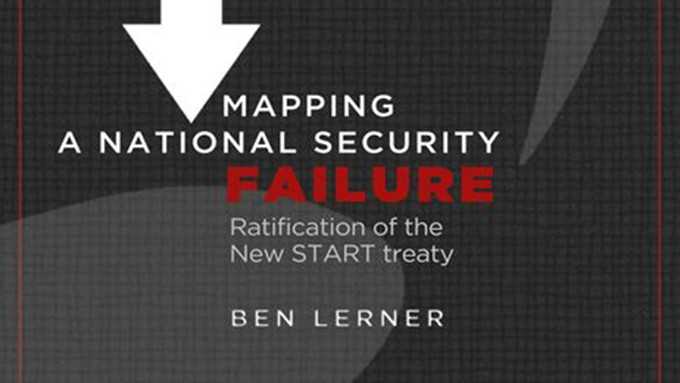Mapping a National Security Failure: Ratification of the New START Treaty

The perceived need for a “reset” of U.S.-Russia relations stemmed from several points of contention between the two nations going back to the administration of President George W. Bush, as well as between Russia and NATO, and was fueled by the perceived need for Russian cooperation on U.S. wartime efforts in Afghanistan and on addressing the burgeoning Iranian nuclear weapons program. The Bush administration had planned to deploy missile defense systems in Poland and the Czech Republic, and had signaled support for the expansion of NATO to include Ukraine and Georgia, both former Soviet republics.[2] Tensions between Washington and Moscow were further exacerbated by the Russian invasion of neighboring Georgia in the summer of 2008, resulting in President Bush declaring that Russia must withdraw its forces from there, and vowing that the United States would “work with our allies to ensure Georgia’s independence and territorial integrity.”[3] Dmitry Medvedev, President of the Russian Federation, spelled out a list of particulars in early 2009, citing U.S. missile defense initiatives and attempted NATO expansion among the reasons for the deterioration in the relationship:
Unfortunately, relations soured because of the previous U.S. administration’s plans—specifically, deployment of the U.S. global missile defense system in Eastern Europe, efforts to push NATO’s borders eastward and refusal to ratify the Treaty on Conventional Armed Forces in Europe. All of these positions undermined Russia’s interests and, if implemented, would inevitably require a response on our part.[4]
Adding some sense of urgency to the idea of “resetting” relations with Russia was the government of Kyrgyzstan’s announcement on 3 February 2009—just days after Russia had offered Kyrgyzstan a $2 billion aid package—that American troops would have to leave that nation’s Manas airbase, which had served as a key supply conduit for operations in Afghanistan.[5] It was not lost on some analysts when a few days later, Russia offered its airspace for American use to transport supplies to Afghanistan—sending a signal that Russia had no problem asserting itself as a critical player in U.S. war efforts there.[6]
The issue of Iran’s nuclear program also played a role in motivating the “reset.” Just a few weeks after Vice President Biden’s remarks in Munich, then-Secretary of Defense Robert Gates stated that the United States was seeking to reopen dialogue with Moscow on the issue of Iran’s nuclear weapons program.[7] The White House would later identify Russia’s 2010 support for United Nations sanctions against Iran—specifically, United Nations Security Council Resolution 1929—as having resulted from the U.S.-Russia “reset” initiative,[8]
The New START treaty would come to be cast interchangeably as an instrument of the reset and as a product of it. The “Reset” Fact Sheet released by the White House on 24 June, 2010, declared: “On the occasion of President Medvedev’s visit to the United States and one year after President Obama visited Russia, it is time to take stock of what has been achieved from this change in policy and what remains to be done in developing a more substantive relationship with Russia.”[9] The first item to be highlighted: The New START Treaty.
Rose Gottemoeller, Assistant Secretary of State for Verification, Compliance and Implementation, and key U.S. negotiator for New START, would go on to frame the relationship between the “reset” and New START this way:
We have gotten some immediate benefits into the Russian relationship from working so closely together on the START deal. I see an effect particularly on our ability to work with the Russians on Iran.
The result was I think their full support for this very good sanctions resolution that was passed after the treaty was signed in April. And the Russians have been working with us in other ways on Iran that’s very important.
So I think there are some perhaps penalties that we would pay in the US-Russia relationship [if the U.S. failed to ratify New START].[10]
- Trump’s Election Was a Win in the Fight to Keep Gitmo Open - January 4, 2017
- NDAA and the Counter-Drone Challenge - December 23, 2016
- NDAA Takes On Counter-Drone Challenge - December 8, 2016
